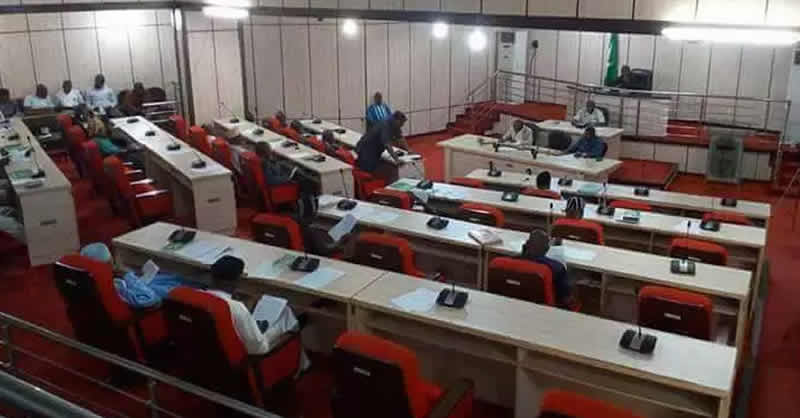The Benue State House of Assembly has unequivocally stated that the recent resignation of its Speaker, Aondona Dajoh, was a voluntary decision driven by personal reasons and not orchestrated by Governor Hyacinth Alia. Elias Audu, the spokesperson for the Assembly, emphasized this point during a televised interview, dismissing any speculation of gubernatorial influence. Audu portrayed the lawmakers as independent thinkers, immune to external coercion, and highlighted Dajoh’s resignation as a personal choice based on his own principles. While acknowledging the inherent political context, Audu insisted there was no internal conflict within the Assembly and that members could not be manipulated. He characterized the transition as a smooth, unanimous election of Berger Emberga as the new Speaker, reflecting the collective will of the Assembly rather than a sign of crisis.
Audu further underscored the Assembly’s commitment to maintaining its independence from the executive branch. He cited the recent rejection of gubernatorial nominations as evidence of their willingness to scrutinize and challenge the governor’s decisions when necessary. This, he argued, demonstrated the Assembly’s adherence to the principle of separation of powers and their dedication to acting in the best interests of the people of Benue State. He emphasized the prevailing atmosphere of peace and cooperation within the Assembly since the beginning of the 2023 legislative session. Governor Alia himself corroborated the Assembly’s position, denying any involvement in Dajoh’s resignation and affirming a positive working relationship with the lawmakers. He reiterated his focus on the state’s development agenda.
Dajoh’s resignation letter, submitted on Sunday, framed his decision as an act of good faith aimed at serving the best interests of Benue State. Following the letter’s submission, an emergency plenary session was convened, presided over by Deputy Speaker Lami Ogenyi. During this session, the Assembly suspended its regular rules of procedure to expedite the election of a new Speaker. Berger Emberga, representing Makurdi North, was unanimously chosen to fill the vacancy. Remarkably, Emberga had recently been suspended along with three other lawmakers over allegations of plotting an impeachment. Upon his election, Emberga pledged to collaborate with his predecessor, Dajoh, and all other members of the Assembly to advance the development goals of Benue State.
This smooth transition of power within the Benue State House of Assembly stands in contrast to the sometimes turbulent relationship between the legislative and executive branches often witnessed in political settings. The Assembly’s insistence on its independence, coupled with the governor’s denial of interference, paints a picture of a relatively harmonious working relationship. The unanimous election of Emberga, despite his recent suspension, further suggests a willingness to put aside internal differences for the greater good of the state. The swift and orderly manner in which the Assembly handled the Speaker’s resignation and the subsequent election speaks volumes about the maturity and stability of the legislative body.
However, the Assembly’s recent rejection of gubernatorial nominations serves as a reminder of its willingness to exercise its oversight function and challenge the executive branch when necessary. The rejection of Timothy Ornguga’s nomination for commissioner, based on petitions alleging a lack of basic qualifications, demonstrates the Assembly’s commitment to upholding standards and ensuring the competence of those appointed to public office. Similarly, the rejection of James Dwen’s nomination further reinforces the Assembly’s resolve to scrutinize appointments and hold the governor accountable for his choices. This assertive stance highlights the Assembly’s commitment to fulfilling its constitutional role as a check on executive power.
In conclusion, the events surrounding the Speaker’s resignation and the subsequent election of a new Speaker in the Benue State House of Assembly underscore the complex dynamics of power-sharing in a democratic system. While the Assembly and the governor maintain a seemingly cordial relationship, the Assembly’s willingness to reject gubernatorial nominations demonstrates its commitment to maintaining its independence and exercising its oversight function. The smooth transition of power within the Assembly, following the Speaker’s resignation, suggests a level of maturity and stability within the legislative body. However, the underlying political currents and potential for future conflicts remain, as the Assembly continues to navigate its relationship with the executive branch and strives to fulfill its mandate to serve the people of Benue State.














